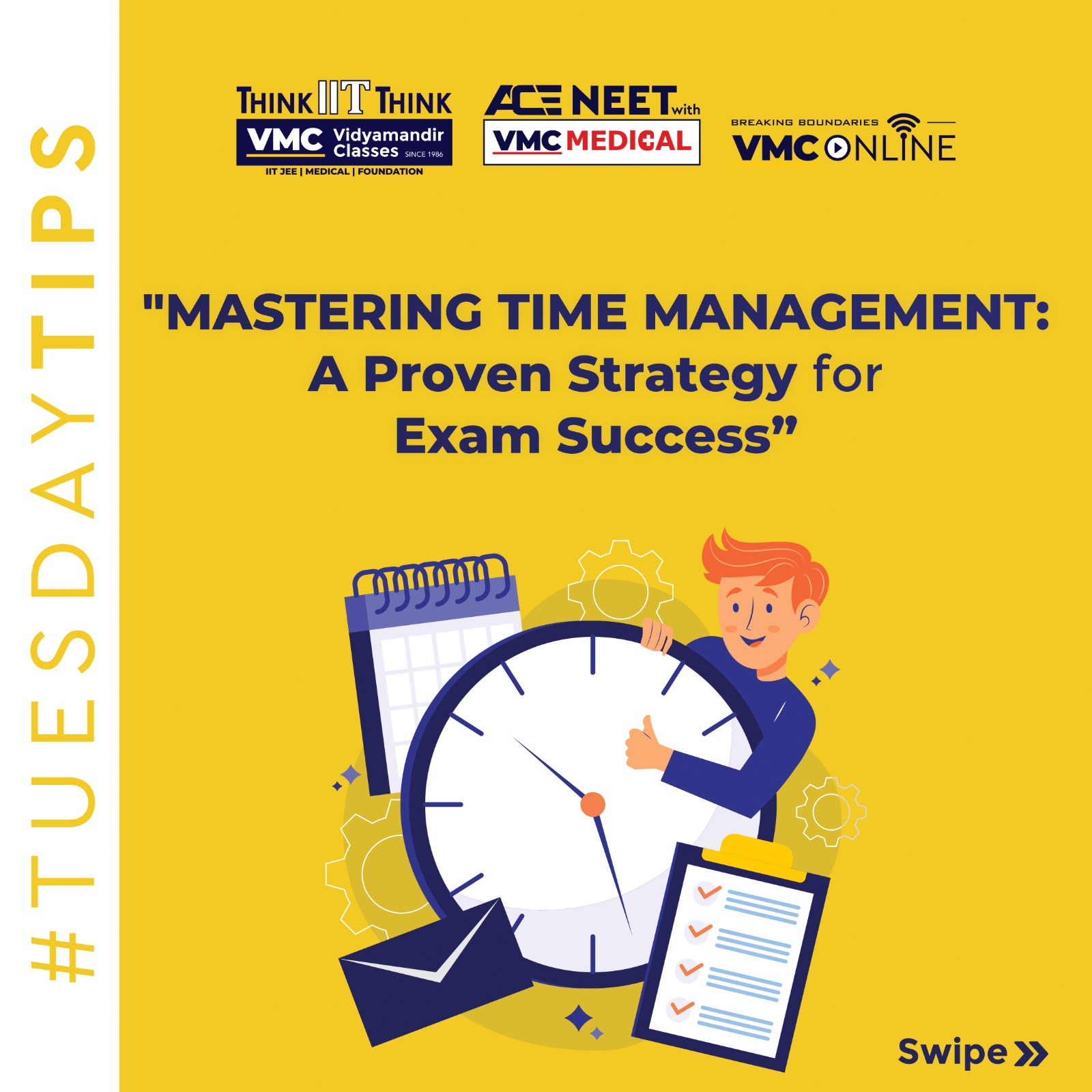Mastering Time Management: A Proven Strategy for Exam Success
 Posted On
Posted On
319 total views, 1 views today
Time management is a crucial skill for students, especially when preparing for exams. The ability to effectively manage your time can significantly impact your academic performance. By implementing a proven strategy, you can optimize your study sessions, enhance productivity, and achieve success in your exams. In this blog post, we will explore nine key strategies for mastering time management and improving your exam preparation.
- Prioritize and Plan:
One of the first steps in effective time management is to prioritize your study tasks. Identify the subjects or topics that require more attention and allocate your time accordingly. By understanding your strengths and weaknesses, you can ensure that you allocate more time to challenging subjects while still maintaining a balance with other topics. Create a study schedule or timetable that outlines specific study periods for each subject, ensuring that you give adequate attention to all of them. Additionally, breaking down larger topics into smaller, manageable study sessions can make the learning process more approachable and less overwhelming.
- Use the Pomodoro Technique:
The Pomodoro Technique is a time management method that involves breaking your study sessions into intervals, typically 25 minutes each, known as “pomodoros.” During each pomodoro, you focus solely on studying without any distractions. After completing a pomodoro, take a short 5-minute break to rest your mind. After four consecutive pomodoros, take a longer break of 15-30 minutes. This technique helps maintain focus, prevents burnout, and enhances productivity by incorporating regular breaks into your study routine.
- Utilize Active Learning Techniques:
Engaging in active learning techniques can significantly improve your understanding and retention of study material. Instead of passively reading or listening to lectures, actively participate in the learning process. Summarize information in your own words, teach concepts to a study partner, create flashcards for quick review, or engage in discussions and debates related to the subject matter. By actively interacting with the material, you stimulate your brain and reinforce your understanding, leading to better exam performance.
- Employ the “Two-Minute Rule”:
The “Two-Minute Rule” is a productivity strategy that emphasizes taking immediate action on tasks that require minimal time investment. If you come across a task that can be completed in less than two minutes, tackle it right away. Examples include answering quick review questions, organizing study materials, or scheduling study sessions. By promptly addressing these small tasks, you prevent them from accumulating and becoming a source of distraction or procrastination.
- Avoid Multitasking:
Contrary to popular belief, multitasking does not enhance productivity; in fact, it often hampers it. When studying for exams, it’s best to focus on one subject or task at a time. Multitasking divides your attention and can lead to decreased concentration and efficiency. Instead, focus on finishing each activity completely before moving on to the next. By giving your undivided attention to each subject, you maximize your concentration and absorb the material more effectively.
- Take Regular Breaks:
Regular breaks are crucial for sustaining productivity and avoiding mental exhaustion. Continuous studying without breaks can lead to diminishing returns, as your ability to concentrate and retain information decreases over time. Schedule short breaks every 60-90 minutes to relax, stretch, hydrate, or engage in light physical activity. Stepping away from your study materials allows your mind to rest and recharge, leading to improved focus and productivity when you resume studying.
- Practice Self-Care:
While preparing for exams, it’s crucial not to neglect your physical and mental well-being. Engaging in self-care activities is vital for managing stress and optimizing cognitive abilities. Ensure you get sufficient sleep to rejuvenate your mind and consolidate the knowledge you’ve acquired. Maintain a balanced diet with nutritious meals to fuel your body and brain. Regular exercise, even in the form of light physical activity, promotes overall well-being and enhances mental clarity. Taking care of yourself holistically will contribute to your success in exams.
- Review and Revise:
Dedicate specific time slots for reviewing previously learned material. Regular review sessions help reinforce knowledge and improve long-term retention. Utilize active recall techniques, such as practice tests or explaining concepts aloud, to test your understanding and identify areas that require further attention. Actively engaging with the material during review sessions helps solidify your understanding and identify any gaps in your knowledge.
- Minimize Distractions:
Effective time management requires a conducive study environment. Disable notifications on your phone or computer to reduce distractions. Consider using productivity apps or browser extensions that block distracting websites during your study sessions. Find a spot to study that is peaceful and comfortable so that you can concentrate without distractions. By eliminating or reducing external distractions, you can optimize your study time and maintain a higher level of concentration.
Final Thoughts
In conclusion, mastering time management is a key factor in achieving success in exams. By implementing the strategies outlined above, you can prioritize your study tasks, use effective study techniques, and create an environment conducive to focused learning. Remember to take regular breaks, practice self-care, and allocate time for review and revision. With these proven strategies, you can optimize your study sessions, improve your exam preparation, and ultimately achieve the success you desire.
